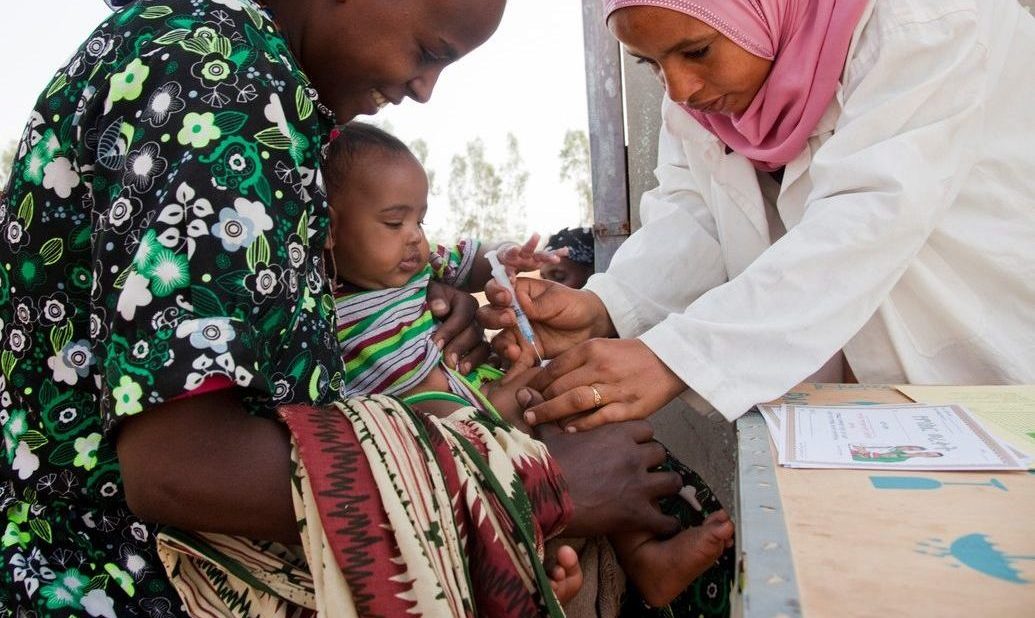
Strengthening Local Humanitarian Leadership Collaborative
This philanthropic collaborative exists to increase the quantity and quality of direct funding and other types of demand-driven support for local humanitarian leadership.
We are a group of funders and philanthropic organizations working together across interconnected and intersectional issues committed to supporting and enabling the leadership, reach and impact of local disaster and humanitarian crisis responders.
Beyond supporting crisis response, we partner with and support local actors to better anticipate and prepare for crises, and to recover equitably when they occur, working toward a more vibrant, secure and peaceful future where all populations have equal opportunity to thrive.
We invite other funders and philanthropic actors who align with our principles and values to learn more about the Strengthening Local Humanitarian Leadership (LHL) Philanthropic Collaborative’s work, benefits and achievements. We have a wealth of resources for non-members and members alike.
NEW: Coalition for Mutual Aid in Sudan
A Commitment to Action announced at the
Clinton Global Initiative 2024 Annual Meeting
Who We Are
Our funder collaborative exists to increase the quantity and quality of direct funding and other types of demand-driven support for local humanitarian leadership.
With generous funding from the Bill & Melinda Gates Foundation, the Conrad N. Hilton Foundation and the Margaret A. Cargill Philanthropies, and the convening and organizing power and administrative leadership of the Center for Disaster Philanthropy (CDP) as the coalition Secretariat, the LHL Collaborative is continuously analyzing, reflecting on, and re-assessing its focus, performance and impact as discourse and thought leadership evolve. Year-on-year, we have invested more resources into the group, thoughtfully and intentionally growing the coalition, and moving from coordination, peer exchange and learning to greater and more intentional individual and collective action and impact.
Our work has resulted in a stronger network of like-minded peers, tangible changes in funding policies and practices, and new and innovative collaborations that center local communities, supporting them in addressing impacts of a crisis, responding to them quickly, and achieving a full and sustainable recovery.
Founded in 2018, the LHL Collaborative brings together a diverse array of philanthropic funders and actors committed to leveraging our individual and collective position, power and privilege to increase support and further enable the reach and impact of local humanitarian leaders worldwide. Our goal is to ensure that those on-the-ground are equipped to adequately prepare for, respond to and recover from crises in ways that are effective, efficient, dignified and compatible with the cultural, socio-political and economic realities of the communities they serve.
- Ansara Family Fund
- Bill & Melinda Gates Foundation
- Center for Disaster Philanthropy
- Clinton Global Initiative
- Conrad N. Hilton Foundation
- Humanity United
- GlobalGiving
- Global Whole Being Fund
- The LEGO Foundation
- Margaret A. Cargill Philanthropies
- Microsoft Philanthropies
- Myriad
- The Open Society Foundations
- Vitol Foundation
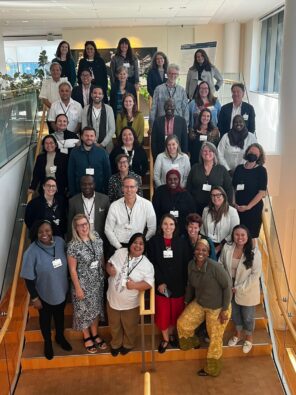
We recognize that supporting resilience and systemic improvements requires intentional linkages with peer grantmaking networks that are focused on supporting communities affected by ongoing violence, conflict and human rights abuses. To this end, we closely collaborate with the Peace & Security Funders Group (PSFG) and the Human Rights Funders Network (HRFN) and attend relevant convenings hosted by each group to exchange practical lessons and build on opportunities to leverage the resources within each network.
We encourage you to discover how our funder collaborative can help transform and amplify the impact of your disaster giving and support more equitable power distribution within the disaster and humanitarian aid ecosystem.
The Case for Localization
Local communities are the first to respond to a disaster or crisis. They play a vital role providing immediate relief and setting the course for long-term equitable recovery afterwards. Yet, local humanitarian leaders are consistently under-resourced and inadequately funded to do this critical work effectively. They are hamstrung by a systemic imbalance of power that puts funders, rather than local leaders, in the driver’s seats for making critical decisions about strategically deploying increasingly limited resources.
This imbalance was widely acknowledged and accepted at the first-ever World Humanitarian Summit in 2016, and a series of bold pledges were made by world leaders and the largest international (largely governmental) donors to address this inequitable distribution of power and resources in the humanitarian system, most notably through the signing of the “Grand Bargain” agreement. These commitments have unfortunately not yielded the intended results.
We believe that local actors are often the best placed to understand the context, provide immediate relief and set the course for long-term equitable recovery. They leverage local knowledge, history and connections to develop appropriate, timely and effective mitigation. They also develop response and recovery plans that are compatible with the cultural, socio-political and economic realities of the communities they serve — in ways that are sustainable and strengthen local communities’ ability to withstand disasters and respond effectively when they occur.
The Collaborative acknowledges the humanitarian system’s past failures and current challenges in adequately and appropriately meeting the self-identified needs of affected people and communities. We are committed to considering and addressing the root causes of inequities and vulnerabilities to ensure long-term, sustainable, positive outcomes and solutions for communities at risk in crises.
Strengthening Local Humanitarian Leadership Philanthropic Toolkit
A collection of resources that includes practical information and guidance on shifting the power dynamics in funding from donors to local humanitarian leaders.
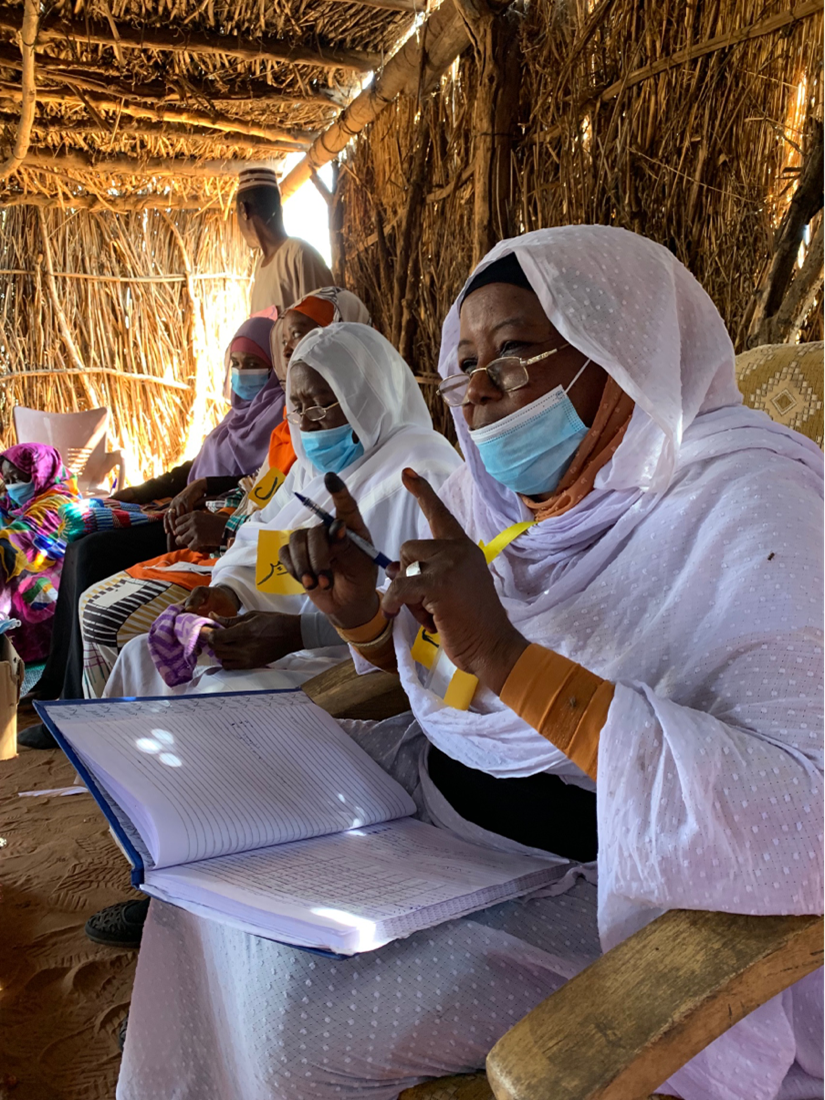
Statement of Purpose and Goals
- Advance an agenda across the philanthropic sector to support the leadership and capacities of local actors, leadership and responders by making tangible changes within our own institutions and grantmaking practices related to funding allocations, policies, partnership decisions and practices positively impacting grantees and partners across the ecosystem who support and enable locally led humanitarian action.
- Identify, share and promote equitable funding principles and promising practices in practical ways that encourage and influence peers in the philanthropic sector and the donor community more broadly toward increasing the amount and quality of support for strengthening locally led crisis response and equitable local partnerships.
- Leverage the privilege, power and tremendous resources of this group toward strategic investments and support for tangible collaborations and individual or collective action with measurable results that shift power and better align with local humanitarian actors’ and communities’ self-identified acute and longer-term priorities and needs.
What We Do
- We support locally-led action by adopting and adapting equitable funding and partnership practices, measurably shifting resources and power for decision-making closer to crisis affected communities, acknowledging their agency and knowledge and understanding of local contexts.
- We use our platform and voice to promote and prioritize the core principles of equity, solidarity and local partnership in humanitarian action, in response to inequitable power structures and systems.
- We listen to, unlearn and learn with peer funders and ecosystem leaders with lived experience of responding to disasters and humanitarian crises.
- We work to influence internal and external stakeholders to remove barriers and increase meaningful, high-quality support for local humanitarian actors (traditional and non-traditional) responding to crises.
- We take action to improve donor coordination and collaboration both within the LHL membership and across the nexus of peer philanthropic funding movements, in response to the demands of local crisis responders to reduce the burden of non-value-adding donor engagement.
- Collectively identify new and innovative ideas and opportunities for collaboration and coordinated investment, alongside real-time research, learning and adaptation focused on building a case for alternative localized response models for the benefit of the wider aid ecosystem.
Our Values and Principles
- Solidarity with affected populations
- Equity in partnerships
- Humility, trust and mutual respect in our approach to partnership
- Local expertise and knowledge
- The centrality and importance of strong local systems and ecosystems of actors across the humanitarian-development-peacebuilding nexus
- Contextually relevant approaches and measures of success
- Long-term solutions and sustainable outcomes and approaches
- Accountability to affected communities and local and national actors
- Continuous learning and investment into existing, new and emerging evidence-based practices, including evaluating the impacts of direct funding to local actors and communities, different proximate and intermediary funding channels, and partnership structures and approaches that place affected communities at the center.
Summary of LHL Collaborative Indicator Progress
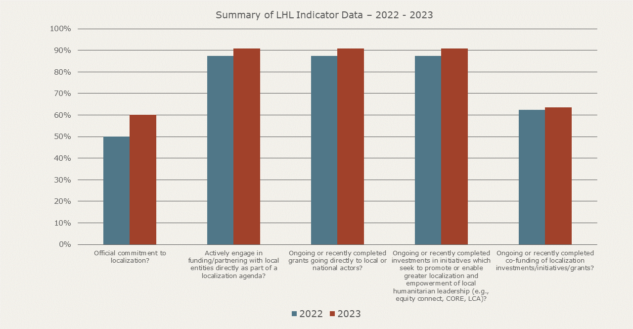
Localization in Action
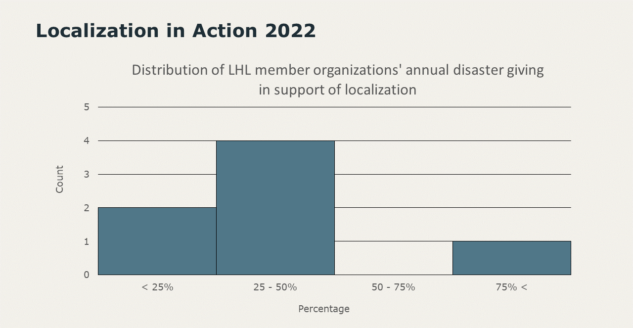
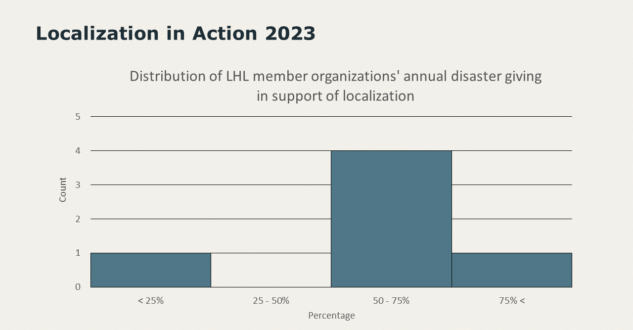
The Work Ahead
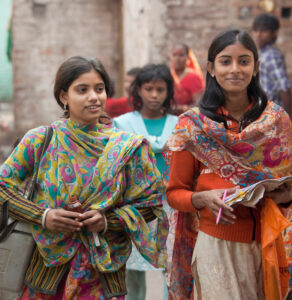 Members of the collaborative meet regularly to learn from others; examine and reflect on grantmaking and partnership practices, policies and approaches; and learn from international, local and regional civil society, private sector actors, and governmental and multi-lateral organizations in the humanitarian aid and development and peacebuilding sectors.
Members of the collaborative meet regularly to learn from others; examine and reflect on grantmaking and partnership practices, policies and approaches; and learn from international, local and regional civil society, private sector actors, and governmental and multi-lateral organizations in the humanitarian aid and development and peacebuilding sectors.
Members can opt-in or opt-out of funding opportunities while still benefiting from ongoing educational outreach and resource development.
Key Resources
Learn more about the role of local humanitarian and response organizations in preventing and recovering from a disaster or crisis.
- Strengthening Local Humanitarian Leadership Philanthropic Toolkit
A collection of resources that includes practical information and guidance on shifting the power dynamics in funding from donors to local humanitarian leaders who are the first responders in climate-related, conflict-related and natural hazard borne crises. - Strengthening Local Humanitarian Leadership 2023 Convening Report
A report containing reflections and key takeaways from the September 2023 in-person convening of the Strengthening Local Humanitarian Leadership Philanthropic Collaborative members and global ecosystem thought leaders committed to equitable partnerships, solidarity and the localization/decolonization of the international aid system. The convening was hosted by the Bill & Melinda Gates Foundation and facilitated by CDP. - Strengthening Local Humanitarian Leadership 2019 Convening Report
Following up on a meeting in 2018 of nine U.S.-based philanthropic organizations, the Bill & Melinda Gates Foundation hosted a second meeting in 2019 to gather the original participants and several new partners. During the intervening months, a smaller subset of foundation representatives had met regularly to design the meeting and to accomplish the completion and scheduled launch of the Strengthening Local Humanitarian Leadership Philanthropic Toolkit. - Strengthening Local Humanitarian Leadership 2018 Convening Report
In February 2018, the Bill & Melinda Gates Foundation, in partnership with CDP, gathered leaders from eight other U.S.-based foundations to explore potential collaborative efforts to advance support for local humanitarian actors. The meeting focused on gaining a clearer understanding of what local humanitarian action looks like, exploring examples of funder practices and exploring opportunities, challenges and gaps in funding local humanitarian actors. The LHL funder collaborative was formed at this gathering.